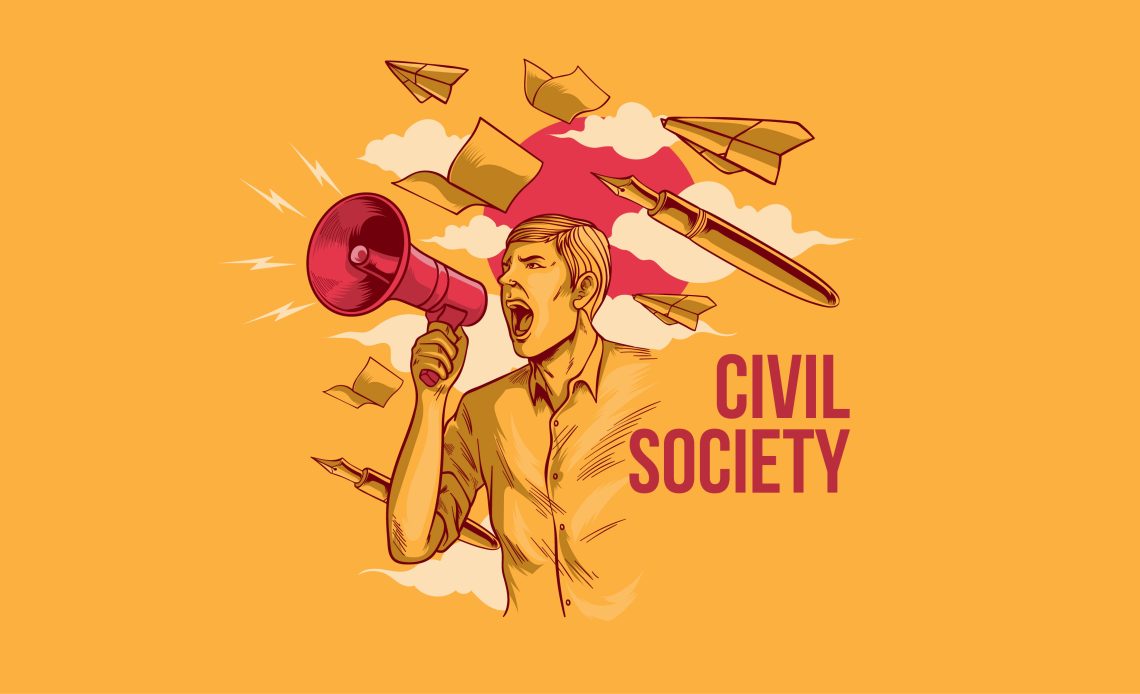
Have you ever taken to the streets to fight for something you believe in? The reality is that most of us, even in the face of injustice and abuses of power, will resort to the most convenient and easy option; lamenting about the state of the country from the comfort of our houses and then moving on with our lives. We have become an apathetic society such that even when the President admits publicly that Ksh. 2billion is stolen daily within the government, we don’t stop to think “what can I do about this?”. This is where civil society activists come in. They dedicate their lives to giving us a voice and demanding meaningful change. They are a necessary watchdog for the government and therefore when actions are taken to undermine their role, this ultimately undermines our right as a democratic society to demand better services from our leaders.
In an ideal democracy, the role and rights of civil society activists would be respected. However, recent events demonstrate that Kenya does not fit the mould of an ideal democracy. On February 21, 2022, a Magistrate’s court in Mombasa sentenced five activists to six months of probation. They were convicted of the offences of prohibited gathering and failure to maintain physical distance under the Public Health (Covid-19 Restriction of Movement of Persons and Related Measures) Rules of 2020 (Covid Rules). These activists had been arrested and charged for protesting against the misappropriation of public funds allocated to address Covid-19 in Kenya. They called for the government to take action and arrest the responsible persons. Ironically, politicians were allowed to continue holding political gatherings against the Covid-19 Rules without similar consequences. Further, the individuals that the activists were protesting against have still not been arrested despite the Ethics and Anti-Corruption Commission (EACC) recommending prosecution.
This act could give a glimpse of the selective and inconsistent use of the law to punish individuals in Kenya. The law, in this case, is being used as a tool to criminalize and paralyze civil society and its efforts to demand for a just society. This is not an isolated case as the police and the courts have a history of aiding in the suppression of activists’ efforts. This has especially been prominent in the context of protests, thus violating the activists’ right to assemble and demonstrate against public authorities. When courts sentence activists who are exercising their right to demonstrate, they appear to be aiding the suppression of activism, fundamental rights and democratic ideals. Further, the Office of the Director of Public Prosecutions (ODPP), using their discretion to charge activists, also aids in this suppression.
A 2019 report by Article 19 on the Right to Protest in Kenya highlighted that while the right to protest is protected in Article 37 of the Constitution and international human rights laws ratified by Kenya, the Public Order Act contravenes these provisions. Section 5 of the Act prohibits any person including activists from holding an assembly or demonstration without notifying the relevant authorities. In practice, once they notify authorities, activists are likely to be denied permission to protest against the government. Protests as a form of activism are critical in any democracy and in defending human rights and should not be criminalized. Arresting and convicting activists for trying to hold the government accountable in a country that purports to be a democracy is a bad precedent. Such events paint Kenya as a country that is democratic on paper but not in practice.
If we allow this to continue, then we are headed for a future where the voice of the people is ignored, with public officials being allowed to act without accountability. It starts as 6-month probation, then progresses to prison sentences and before we know it, we have undone all the progress our predecessors have done in shaping democracy in Kenya. I, therefore, implore all of us to defend our democracy and human rights by not turning a blind eye to these blatant attempts to suppress activism. As Peter Marshall said, “A different world cannot be built by indifferent people”. I hope you don’t be one of the indifferent people, especially when it comes to gagging the voice of the civil society.


